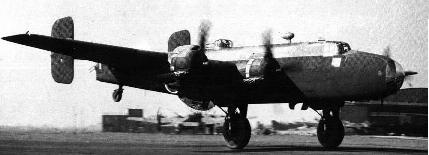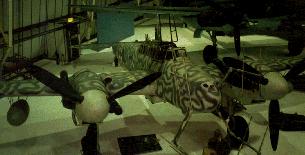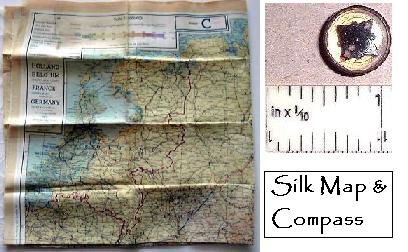 Sergeant W.R. Laws - Wireless Operator - 102 Squadron
Sergeant W.R. Laws - Wireless Operator - 102 Squadron


W.R. Laws was the wireless operator (radio) on the Halifax with Wally Lashbrook and Alfred Martin that evening of April 16th 1943. Like Alfred the bomb aimer on this trip and the navigator Flying Officer Bolton he bailed out of the front hatch. He ended up separated from his crew, but later was in the company of group Captain John Rene Whitely (later an Air Marshal)on his trek to Spain via another branch of the Comet line. Sgt Laws sent me his evasion story which is also included in a book called the Valley of the Shadow of Death about the Bomber Command campaign from March-July 1943 by J Alwyn Phillips.
With the attack of the Night Fighter  the aircraft was in flames and the order to bail out was passed along as the intercom had failed. Sgt Laws the wireless operator was the third man out after Flying Officers Martin and Bolton. Flight Sgt Knight and Pilot Wally Lashbrook followed. Sgt Laws in his debriefing report indicated that he did not think that the gunners had a chance to get the bail out message. The upper gunner was wounded and the rear gunner killed outright. the wounded gunner was put in his parachute and pushed out of the aircraft in the hopes that when captured the Germans would provide medical attention. While in his descent Sgt Laws observed the flaming aircraft break in two. He landed uninjured in a wood and like the other airman buried his parachute and mae west life preserver straight away. He walked quickly to the south to put as much distance between himself and the crash site as possible.
the aircraft was in flames and the order to bail out was passed along as the intercom had failed. Sgt Laws the wireless operator was the third man out after Flying Officers Martin and Bolton. Flight Sgt Knight and Pilot Wally Lashbrook followed. Sgt Laws in his debriefing report indicated that he did not think that the gunners had a chance to get the bail out message. The upper gunner was wounded and the rear gunner killed outright. the wounded gunner was put in his parachute and pushed out of the aircraft in the hopes that when captured the Germans would provide medical attention. While in his descent Sgt Laws observed the flaming aircraft break in two. He landed uninjured in a wood and like the other airman buried his parachute and mae west life preserver straight away. He walked quickly to the south to put as much distance between himself and the crash site as possible.
Relaizing his RAF battle dress made him conspicuous he rolled down his trousers to cover his flying boots, then using his escape compass, he walked through a village. He saw a sign post identifying it as Montbliart. here he left the road and walked across country, through some woods for about two hours before stopping in a field to eat some cholocate and Horlicks tablets (malted milk balls) from his kit. After it becam light he studied his map but was unable to fix his position around Montbliart and was unsure if he was in France or Belgium.  At night fall on the 17th, he continued walking south and used his water bottle to acquire some water from a brook, making sure to put in the purifying tablets before drinking and taking a benzdrine tablet to stay awake. Walking on he passed through the villages of Seloignes and Villers La Tour before he decided to lay up for a rest.
At night fall on the 17th, he continued walking south and used his water bottle to acquire some water from a brook, making sure to put in the purifying tablets before drinking and taking a benzdrine tablet to stay awake. Walking on he passed through the villages of Seloignes and Villers La Tour before he decided to lay up for a rest.
On the morning of the 18th he removed the badges from his uniform and continued on. Eventually he came to an isolated chateau, where the man who looked like he may be the game keeper, came up to him and spoke in French. Luckily Sgt Laws could speak French fairly fluently and explained to the man that he was an English airman and wanted to know where he was. The man stated that he was a Pole (like Wally Lashbrooks same initial contact) and was the caretaker of the Chateau that was unoccupied. he also said that the chateau was in Belgium, near Les Taillettes, about 7 kilometers from the French frontier. The man took him into the chateau and allowed him to shave with his razor and gave him some food. He was also given an old blue mackintosh. In return Sgt Laws gave him 500 francs from his escape kit. The caretaker was quite afraid to have Sgt Laws there and advised him to carry on keeping to the woods and to walk south into France.
About midnight on the 18th/19th of April he set out again and at daybreak crossed the frontier into France north of Watingy. He then sheltered in a bombed out house where he ate some of the bred and cheese that Pole had given him, then went to sleep. When he awoke he again set off along a road to Fligny, which he reached at 14:00 hours (2 in the afternoon) and continued onto Auge. It was here that a bad storm broke, with exceptionally heavy rain, so soaking wet he approached an isolated farm house and sheltered under its front porch. A girl of about 24 opened the door and spoke to him, then invited him in to shelter from the storm. As Sgt Laws replied in French the girl did not know who he was, but once inside he explained that he was a British airman. She and her family became very frightened when they found out that he had no identiy discs to show them
 and his ability to speak French so fluently was also suspicious to them. However the did give him food and allowed his to sleep in the barn over night. One of the family went to a friend to talk about Sgt Laws and the friend sent back word for the Sgt to write down the names of his crew and where he was shot down and his landing spot. The paper was taken back to by the girl later that night. The next day he was told that someone would come for him, this in fact did not happen right away and he stayed in the barn. (The questions were similar to the ones being asked of Alfered martin and Wally Lashbrook) The underground organizations were checking and cross checking to be sure they had the same stories. None of the Halifax crew ever knew of the others where abouts until much later.) On April 21st the man who had asked for the paper arrived and told LAws to stay where he was and that help would be forth comming. he stayed in and around the barn until May 4th, when at last the man returned with a car and took Sgt Laws to another village. He then met up with group captain Whitely who had bailed out after a mission over Frankfurt on April 11th. From here the necessary arrangements were made by the underground and finally Sgt Laws was on his way.
The highlight of his stay in Madrid after reaching the safety of the British Embassy was a trip to a night club and atending the bull fights before making his way to Gilbraltar and the home flight.
and his ability to speak French so fluently was also suspicious to them. However the did give him food and allowed his to sleep in the barn over night. One of the family went to a friend to talk about Sgt Laws and the friend sent back word for the Sgt to write down the names of his crew and where he was shot down and his landing spot. The paper was taken back to by the girl later that night. The next day he was told that someone would come for him, this in fact did not happen right away and he stayed in the barn. (The questions were similar to the ones being asked of Alfered martin and Wally Lashbrook) The underground organizations were checking and cross checking to be sure they had the same stories. None of the Halifax crew ever knew of the others where abouts until much later.) On April 21st the man who had asked for the paper arrived and told LAws to stay where he was and that help would be forth comming. he stayed in and around the barn until May 4th, when at last the man returned with a car and took Sgt Laws to another village. He then met up with group captain Whitely who had bailed out after a mission over Frankfurt on April 11th. From here the necessary arrangements were made by the underground and finally Sgt Laws was on his way.
The highlight of his stay in Madrid after reaching the safety of the British Embassy was a trip to a night club and atending the bull fights before making his way to Gilbraltar and the home flight.
Sgt Laws: " On my return to England in June of 1943 I did not resume operational flying. Having completed a fair number of sorties over European targets with other crews and pilots I was posted to Training Command and subsequently awarded the D.F.M Distinguished Flying Medal.  ( Equivalent to the D.F.C awarded to Officers.) An enlisted pilot or aircrew might win the DFM and a DFC if later promoted and another act of bravery occured. There was no opportunity for an officer to win a DFM. Normally evaders as they are known were not returned to operational flying, for the reasons of:
( Equivalent to the D.F.C awarded to Officers.) An enlisted pilot or aircrew might win the DFM and a DFC if later promoted and another act of bravery occured. There was no opportunity for an officer to win a DFM. Normally evaders as they are known were not returned to operational flying, for the reasons of:
the difficulties thay had already survived and the risk to the underground should they be shot down again and captured. Some were posted at their own request to the Far East Command and served against the Japanese. The Nazi authorities may well have used coercion to extract the names of the resistance leaders that they wanted so badly. As it was, many people who helped were rounded up in 1944, jailed and or executed just before the Germans were pushed out of France.
Sgt Laws: "I was later comissioned a Pilot Officer and took up duties as a staff operator. Consequently it was not until after the war that I finally met up with the surviving members of our Halifax crew. We have remained in contact ever since."
This page hosted by 
Get your own Free Home Page




 the aircraft was in flames and the order to bail out was passed along as the intercom had failed. Sgt Laws the wireless operator was the third man out after Flying Officers Martin and Bolton. Flight Sgt Knight and Pilot Wally Lashbrook followed. Sgt Laws in his debriefing report indicated that he did not think that the gunners had a chance to get the bail out message. The upper gunner was wounded and the rear gunner killed outright. the wounded gunner was put in his parachute and pushed out of the aircraft in the hopes that when captured the Germans would provide medical attention. While in his descent Sgt Laws observed the flaming aircraft break in two. He landed uninjured in a wood and like the other airman buried his parachute and mae west life preserver straight away. He walked quickly to the south to put as much distance between himself and the crash site as possible.
the aircraft was in flames and the order to bail out was passed along as the intercom had failed. Sgt Laws the wireless operator was the third man out after Flying Officers Martin and Bolton. Flight Sgt Knight and Pilot Wally Lashbrook followed. Sgt Laws in his debriefing report indicated that he did not think that the gunners had a chance to get the bail out message. The upper gunner was wounded and the rear gunner killed outright. the wounded gunner was put in his parachute and pushed out of the aircraft in the hopes that when captured the Germans would provide medical attention. While in his descent Sgt Laws observed the flaming aircraft break in two. He landed uninjured in a wood and like the other airman buried his parachute and mae west life preserver straight away. He walked quickly to the south to put as much distance between himself and the crash site as possible. 

 ( Equivalent to the D.F.C awarded to Officers.) An enlisted pilot or aircrew might win the DFM and a DFC if later promoted and another act of bravery occured. There was no opportunity for an officer to win a DFM. Normally evaders as they are known were not returned to operational flying, for the reasons of:
( Equivalent to the D.F.C awarded to Officers.) An enlisted pilot or aircrew might win the DFM and a DFC if later promoted and another act of bravery occured. There was no opportunity for an officer to win a DFM. Normally evaders as they are known were not returned to operational flying, for the reasons of: